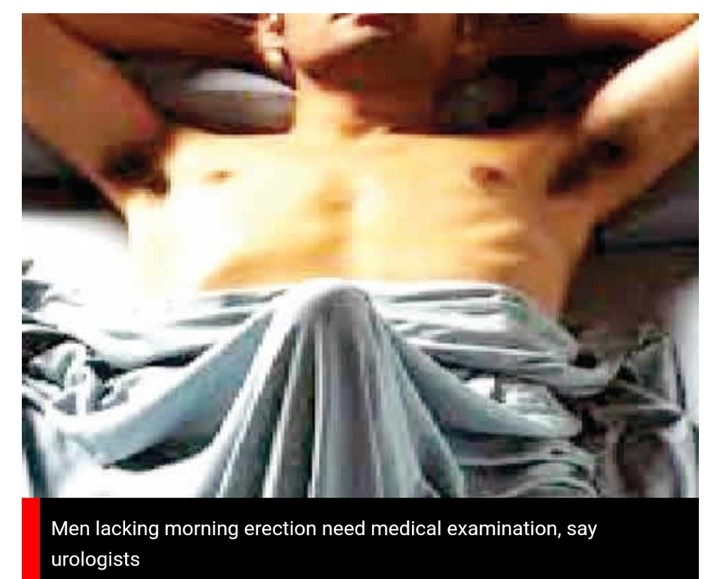Health/Beauty
HIV/AIDS: We will continue to bring prevalence rate down in Ogun, Gov Abiodun Vows

The Ogun State Governor, Prince Dapo Abiodun has said that the present administration in the state will intensify efforts towards reducing the spread of Human Immunodeficiency Virus ( HIV) in the Ogun State.

Governor Abiodun affirmed this when he played host to the United State Deputy Chief Missions in his office on the occasion of the HIV Treatment Surge Light in Abeokuta.

The Anti-retroviral therapy (ART) Surge light campaign was conceptualized by US President’s Emergency Plan for AIDS Relief ( PEPFAR) to put about 20,200 people living with HIV (PLHIV) on life-saving anti-retroviral therapy by September 30, 2021 in Ogun State.
He acknowledged that the initiative was to close the existing gaps, promising that the state government will continue to work towards ensuring that more people are saved from the clutches of HIV/AIDS through sensitization, advocacy and other preventive measures.

According to the Governor, studies and researches have shown that a national household-based survey Nigeria HIV/AIDS Indicator and Impact Survey (NAIIS) as at 2018, assessed and put the prevalence of HIV in Ogun State at 1.6%. This shows a significant reduction from 3.6% prevalence rate in 2010.
“Even at that, we are not satisfied and we are working assiduously to bring the prevalence rate down still. We will work not only to identify and place a minimum of 118 new HIV positive clients on treatment every week, but seek alternative actions to lower the rate of infections and encourage diagnoses and treatment, “he said.
The state’s helmsman also said that the present administration ensured the elimination of ART associated user fees in all health institutions, adding that the move will help all HIV positive clients have access to the free anti-retroviral treatment provided by PEPFAR.
Abiodun stated that the government has expanded treatments for preventing mother-to-child transmissions,just as it has increased enlightenment on the use of condoms, and introduced affordable methods for preventing infection in high-risk populations.
Thanking the US Center for Disease Control for its interest in Ogun State, the Governor commended the developing partner, APIN Public Health Initiatives for its various efforts in the areas of care and donations towards public health in the Gateway State.
He called on stakeholders to continue to partner and collaborate to facilitate the removal of existing barriers to HIV care, treatment and prevention services, saying that the gaps in reaching the Joint United Nations Programme on HIV/AIDS (UNAIDS) of 95 per cent targets across board by the year 2030 and the SDG 3 target of global eradication of AIDS must be addressed.
Speaking earlier, the Commissioner for Health, Dr. Tomi Coker, said the launch of the Anti Retroviral Therapy (ART) Surge light will further build on the State’s achievements by ensuring that key and targeted population are reached, ensuring that the Test and Treat policy, which has been proven to save many lives, is also implemented.
The Commissioner added that the ART Surge Light intervention will ultimately go a long way in delivering on the Prince Dapo Abiodun ‘s vision of providing affordable, accessible, qualitative health services and contributing to an increase in life expectancy of Ogun State citizens.
In his remarks, the US Deputy Chief Missions, Kathleen Fitzgibbon, assured that the an HIV free generation is possible, noting that the efforts of the Ogun State Government in achieving the viral load suppression of 87 percent people living with HIV is commended.
The Chief Executive Officer of APIN, Dr. Prosper Okonkwo, stated that the commitment of Ogun State Government to addressing the scourge of HIV/AIDS is worthy of emulation.
Fashion/Lifestyle
Introducing “Atupaglowco” : Where Fragrance Meets Feeling; The Story of Our Beginning

Introducing “Atupaglowco”: Where Fragrance Meets Feeling; The Story of Our Beginning
Every great journey begins with a sense of anticipation. For us, it began with a simple belief that a space should do more than exist, it should speak comfort and glow.
In a world filled with noise, stress, and endless motion, we realized something powerful. Fragrance can transform not just rooms, but moods. A familiar scent can calm anxiety. A warm aroma can turn a house into a home. A gentle glow can bring peace after a long day. This realization gave birth to “Atupaglowco.”
Atupaglowco was not created to sell diffusers, room sprays, or candles. It was created to create experiences. To create moments. To create atmospheres where people can breathe, reflect, and feel whole again.
The name itself represents more than a brand. It represents warmth. It represents light. It represents presence. We remember the early days, the planning, the testing of scents, the moments of doubt, and the moments of excitement. Each candle poured was a step of faith. Each fragrance blended was a piece of our vision coming to life. We weren’t just building products; we were building something meaningful.
Our diffusers were designed to quietly fill spaces with elegance.
Our room sprays were crafted to instantly refresh and revive environments. Our candles were made to bring calm, beauty, and a soft glow into everyday life.
Atupaglowco was born from passion, patience, and purpose. This launch is not just the start of a business. It is the start of a movement to help people create spaces they love. Spaces that inspire rest. Spaces that inspire joy. Spaces that glow.
We believe fragrance is personal. We believe glow is emotional. We believe every space deserves both.
Today, we proudly introduce Atupaglowco to the world.
This is only the beginning.
Health/Beauty
Transforming Healthcare: RapidHeal Nigeria Offers Job Opportunities for 100 Certified Nurses Nationwide

Transforming Healthcare: RapidHeal Nigeria Offers Job Opportunities for 100 Certified Nurses Nationwide
Health/Beauty
Why Men Without Morning Erection Need Help

Why Men Without Morning Erection Need Help
Male reproductive health experts have urged men to take their sexual health seriously by seeking medical evaluation if they are not experiencing morning erections, a common and natural occurrence in healthy men.
The urologists stated that men experiencing persistent erectile issues or concerns should consult a healthcare professional for personalised evaluation and guidance.
Speaking exclusively with PUNCH Healthwise, the physicians advised men not having morning erections to carry out a comprehensive health assessment, including hormone testing, semen analysis, and lifestyle evaluations, to determine the underlying causes which may be erectile dysfunction or infertility.
According to Healthline, morning erections, a natural occurrence in most men, are often seen as a sign of healthy sexual function. They are typically caused by increased blood flow and hormonal fluctuations during the rapid eye movement (REM) phase of sleep.
The health website, however, noted that a notable number of men have reported experiencing a lack of morning erections, raising concerns about potential fertility or sexual health problems.
While some experts suggested that the absence of morning erection could be linked to underlying health issues, including infertility, others argued that it is not a reliable indicator of reproductive health.
A consultant urologist, Dr Emmanuel Eze stated that the body’s ability to have regular morning erections may be a reflection of broader reproductive health.
The physician stressed that the absence of morning erections could signal problems with hormone levels, such as low testosterone, or vascular health, which could affect overall erectile function and, in some cases, fertility.
Eze emphasised that morning erection is a natural occurrence during the REM sleep stage, typically happening 3-5 times per night.
The physician explained that the absence of morning erections could suggest issues such as erectile dysfunction, low testosterone levels, or underlying cardiovascular conditions.
According to him, it is normal for men to experience morning erections three to five times each night. These erections are typically spontaneous and occur without sexual arousal. The process is part of the body’s natural hormonal fluctuations and is linked to the functioning of the nervous system and blood flow.
Eze explained that these spontaneous erections during sleep are crucial in maintaining healthy erectile function and, by extension, overall reproductive health.
He emphasised that they are a natural and healthy sign of the body’s ability to achieve and maintain erections, which are important for male fertility.
“While occasional changes in morning erections are normal as men age, a persistent lack of them could point to potential health problems such as erectile dysfunction, low testosterone, or even more serious conditions like heart disease. Men mustn’t ignore these early warning signs.
“A comprehensive evaluation can help pinpoint the cause and allow for timely treatment options, whether it’s lifestyle changes, therapy, or medications,” Eze added.
Speaking further, the urologist elaborated that the absence of morning erections could be an indication of various medical conditions that might impact sexual and reproductive health.
“Erectile dysfunction is often the result of an imbalance in the body’s ability to deliver blood to the penis. If morning erections are absent, it could be a reflection of poor blood flow or nerve function, which are key contributors to erectile dysfunction,” Eze explained.
In addition to erectile dysfunction, the male reproductive expert noted that the absence of morning erections may also be linked to low testosterone levels.
He added, “Testosterone is the primary male sex hormone, essential for sexual function, mood regulation, and the production of sperm. A decline in testosterone can lead to a reduced frequency of morning erections. It can also cause a range of other symptoms, such as fatigue, decreased libido, and loss of muscle mass. While a decrease in testosterone levels is a natural part of aging, significant drops in testosterone could signal more serious health concerns.”
Eze also underscored the connection between erectile function and male fertility, stressing that problems with achieving or maintaining an erection could affect a man’s ability to conceive.
He explained that erectile function plays a critical role in sperm delivery, and when erectile issues arise, they could make it more difficult to engage in regular sexual activity, which could impact fertility.
“There is a direct connection between erectile function and male fertility. If a man is consistently not experiencing morning erections, it could indicate that there’s an issue with his reproductive system, whether it’s a problem with his hormones, blood vessels, or nerve function,” he said.
He pointed out that while the absence of morning erections does not automatically equate to infertility, it could signal underlying problems that should be addressed.
Eze advised that men who notice a persistent absence of morning erections should consult a urologist for an evaluation of their reproductive and sexual health.
He explained that poor blood circulation, which is often associated with heart disease or high blood pressure, can directly affect the ability to achieve erections.
“The vessels that supply blood to the penis are small and delicate, and when these vessels are compromised due to poor cardiovascular health, it can result in a decreased ability to have spontaneous erections.
“Erectile dysfunction is frequently one of the early signs of cardiovascular problems. If a man is not having morning erections, it could be a sign that his vascular health is not in optimal condition. It’s essential to recognise this as a potential red flag and seek medical advice before the issue becomes more severe,” the urologist warned.
However, a Senior Registrar in Urology at the Lagos State University Teaching Hospital, Dr. Akpo Edewor, argued that the lack of a morning erection is not necessarily an indication of serious health concerns, as many people assume.
Edewor emphasised that the absence of morning erections is not an automatic sign of erectile dysfunction or serious sexual health problems.
He explained, “Morning erections should not be viewed as the definitive measure of sexual health. It is important to understand that men can still maintain erectile function despite not having morning erections. This does not immediately indicate erectile dysfunction.”
The urologist stressed that various factors, such as sleep patterns, stress, or even the time a man wakes up, can influence whether or not he experiences a morning erection.
He further clarified that a key component in assessing erectile health is the ability to achieve an erection in response to sexual stimuli.
“If a man can still attain an erection when engaging with a partner, even without morning erections, this indicates that his erectile function is likely intact,” he stated.
Erectile dysfunction, according to Edewor, is more complex than just the absence of morning erections. It is a condition where a man consistently struggles to achieve or maintain an erection sufficient for sexual intercourse.
He said various health conditions, including heart disease, diabetes, hypertension, and even the medications used to treat these conditions, could contribute to erectile dysfunction.
-

 celebrity radar - gossips6 months ago
celebrity radar - gossips6 months agoWhy Babangida’s Hilltop Home Became Nigeria’s Political “Mecca”
-

 society6 months ago
society6 months agoPower is a Loan, Not a Possession: The Sacred Duty of Planting People
-

 society5 months ago
society5 months agoReligion: Africa’s Oldest Weapon of Enslavement and the Forgotten Truth
-

 news6 months ago
news6 months agoTHE APPOINTMENT OF WASIU AYINDE BY THE FEDERAL GOVERNMENT AS AN AMBASSADOR SOUNDS EMBARRASSING








